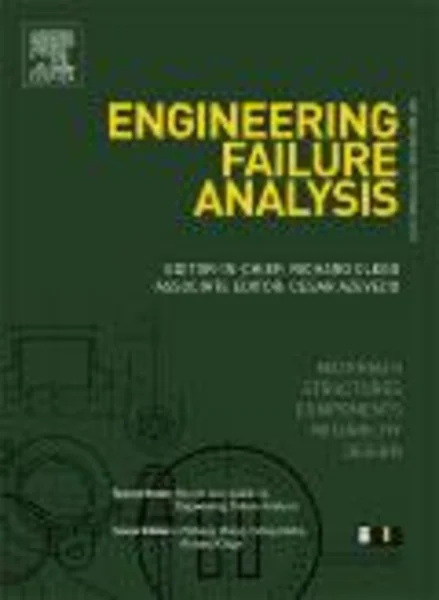-
experimental study of an al2o3/wc–co nanocomposite based on a failure analysis of hammer bit
جزئیات بیشتر مقاله- تاریخ ارائه: 1390/01/01
- تاریخ انتشار در تی پی بین: 1390/01/01
- تعداد بازدید: 528
- تعداد پرسش و پاسخ ها: 0
- شماره تماس دبیرخانه رویداد: -
experimental study of an al2o3/wc–co nanocomposite based on a failure analysis of hammer bitpercussion drilling has been widely used in oil and gas industry because of its significant increase in the rate of penetration (rop) over ordinary mud drilling, yet the drilling tool (especially hammer bit) failures happen frequently, which restrict applications of percussion drilling. using the method of the rock-breaking mechanism, the reasons for hammer bit failure are analysed, and the results show that the mechanical properties of the bit tooth material, which is wc–co cemented carbide, are not suitable for the coupling action of impact spalling, impact fatigue and abrasive wear. hammer bit failure is mainly caused by tooth loss, tooth fracture and tooth wear. to prolong the hammer bit life, an experimental study of an al2o3/wc–co nanocomposite was performed with relevant theories and nanotechnology. nano-al2o3 was doped into wc–co cemented carbide to prepare the al2o3/wc–co nanocomposite. then, the mechanical properties of the nanocomposite were tested. the results show that the mechanical properties of the nanocomposite, such as microhardness, bending strength and impact toughness, are much better than wc–co cemented carbide. the impact and abrasion resistance of the nanocomposite improves, and the microstructure of the nanocomposite also improves markedly.
مقالات جدیدترین رویدادها
-
استفاده از تحلیل اهمیت-عملکرد در ارائه الگوی مدیریت خلاقیت سازمانی و ارائه راهکار جهت بهبود
-
بررسی تاثیر ارزش وجوه نقد مازاد بر ساختار سرمایه شرکت های پذیرفته شده در بورس اوراق بهادار تهران
-
بررسی تأثیر سطح افشای ریسک بر قرارداد بدهی شرکت های پذیرفته شده در بورس اوراق بهادار تهران
-
بررسی تأثیر رتبه بندی اعتباری مبتنی بر مدل امتیاز بازار نوظهور بر نقد شوندگی سهام با تأکید بر خصوصی سازی شرکت ها
-
تأثیر آمیخته بازاریابی پوشاک ایرانی بر تصویر ذهنی مشتری پوشاک ایرانی (هاکوپیان)
-
ارزیابی تأثیر فرکانس ورودی بر شدت روانگرایی بستر موج شکن مرکب با استفاده از آزمایشات مدل میزلرزه 1g
-
بررسی مطالعات انجام شده در حوزه فراموشی سازمانی در ایران
-
بررسی اندرکنش خاک و دیوار انعطاف پذیر ساحلی تحت بارگذاری زلزله
-
بررسی میزان افسردگی دانشجویان دانشکده پرستاری و مامایی دانشگاه علوم پزشکی زنجان، 1379
-
حذف کدورت در شیوه های متداول و نوین تصفیه آب شرب
مقالات جدیدترین ژورنال ها
-
مدیریت و بررسی افسردگی دانش آموزان دختر مقطع متوسطه دوم در دروان کرونا در شهرستان دزفول
-
مدیریت و بررسی خرد سیاسی در اندیشه ی فردوسی در ادب ایران
-
واکاوی و مدیریت توصیفی قلمدان(جاکلیدی)ضریح در موزه آستان قدس رضوی
-
بررسی تاثیر خلاقیت، دانش و انگیزه کارکنان بر پیشنهادات نوآورانه کارکنان ( مورد مطالعه: هتل های 3 و 4 ستاره استان کرمان)
-
بررسی تاثیر کیفیت سیستم های اطلاعاتی بر تصمیم گیری موفق در شرکتهای تولیدی استان اصفهان (مورد مطالعه: مدیران شرکتهای تولیدی استان اصفهان)
-
بررسی و تحلیل اسناد مالکیت معارض در نظام قضایی
-
واکاوی آراء مبتنی بر جبران خسارت در پرتو حقوق بین الملل محیط زیست
-
بررسی جایگاه بانوان در اشعار عصر بیداری، مطالعه موردی سید اشرف الدین گیلانی «نسیم شمال»
-
بررسی عوامل ورزش های بومی محلی در توسعه گردشگری ورزشی (مطالعه موردی: استان یزد)
-
the relationship between working capital management and criterions for value-based performance of the companies listed in tehran stock exchange




سوال خود را در مورد این مقاله مطرح نمایید :